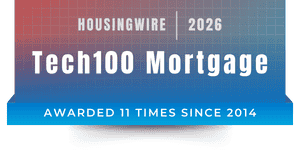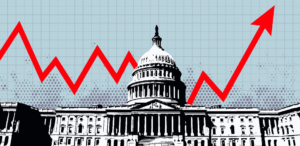Eric P. Fox – Chief Economist, Veros Real Estate Solutions
Drew Rumfola – Economics Intern, Veros Real Estate Solutions
House prices have been going up nearly everywhere over the last year by a very significant amount. According to the Veros Home Price Index, VeroHPI, the average US house price has gone up an incredible 16% over the previous 12 months. Household incomes have lagged far behind with the average hourly wage increasing only approximately 4% from a year ago. So reduced affordability must mean prices will start to appreciate less, or even depreciate, in the near future. Right? Not so fast …
Let’s first check some evidence. As buyers are forced to pay higher prices, lagging incomes would suggest fewer buyers would be paying all cash for their home. However, the opposite is true. All cash transactions have been going up recently. According to Redfin, 30% of home purchases in 2021 were all-cash purchases. That number is up from 25% in 2020 and is the largest value since 2014.
So how is this possible? Of course, real estate is a local phenomenon, and various markets react differently to factors such as affordability, interest rates, unemployment, etc. But examining scenarios in extremely rapidly appreciating areas will help explain what is going on with affordability. In a market such as Phoenix, where there is significant in-migration from high-priced markets such as Los Angeles, San Francisco, and New York, the median house price has been on the rise for years, and 2021 has not broken that trend. Through the second quarter of 2021, the median Phoenix house price saw a 24% year-over-year increase according to VeroHPI. Even though Phoenix house prices are on the rise, many of its new residents are coming from areas with median house prices that are 1.5 to 3 times larger. As many of these people are selling their previous homes from high priced areas, they are able to either pay in full for their new house, causing an increase in all-cash sales, or are able to easily bid up the purchase price of the home in their new locale. Another such market is Boise. Boise has been one of the fastest appreciating markets in the country, with one of the highest percentages of inbound moves according to United Van Lines. Of moves involving Boise, 75% are inbound. At the end of the second quarter of 2021, Boise saw a 30% year-over-year increase in house prices due to nearly identical migration patterns as Phoenix.
It is apparent that house prices have been soaring in the US for the past 12 months. But, unlike other periods of rapidly increasing home values, traditionally high-priced markets are not seeing appreciation at higher rates than more affordable areas such as Phoenix and Boise. This suggests that in many of these rapidly appreciating markets, household income may not be as important a predictor of house price growth as income derived from equity in one’s home.
Sources: Bureau of Labor Statistics, Redfin, United Van Lines, VeroHPI








